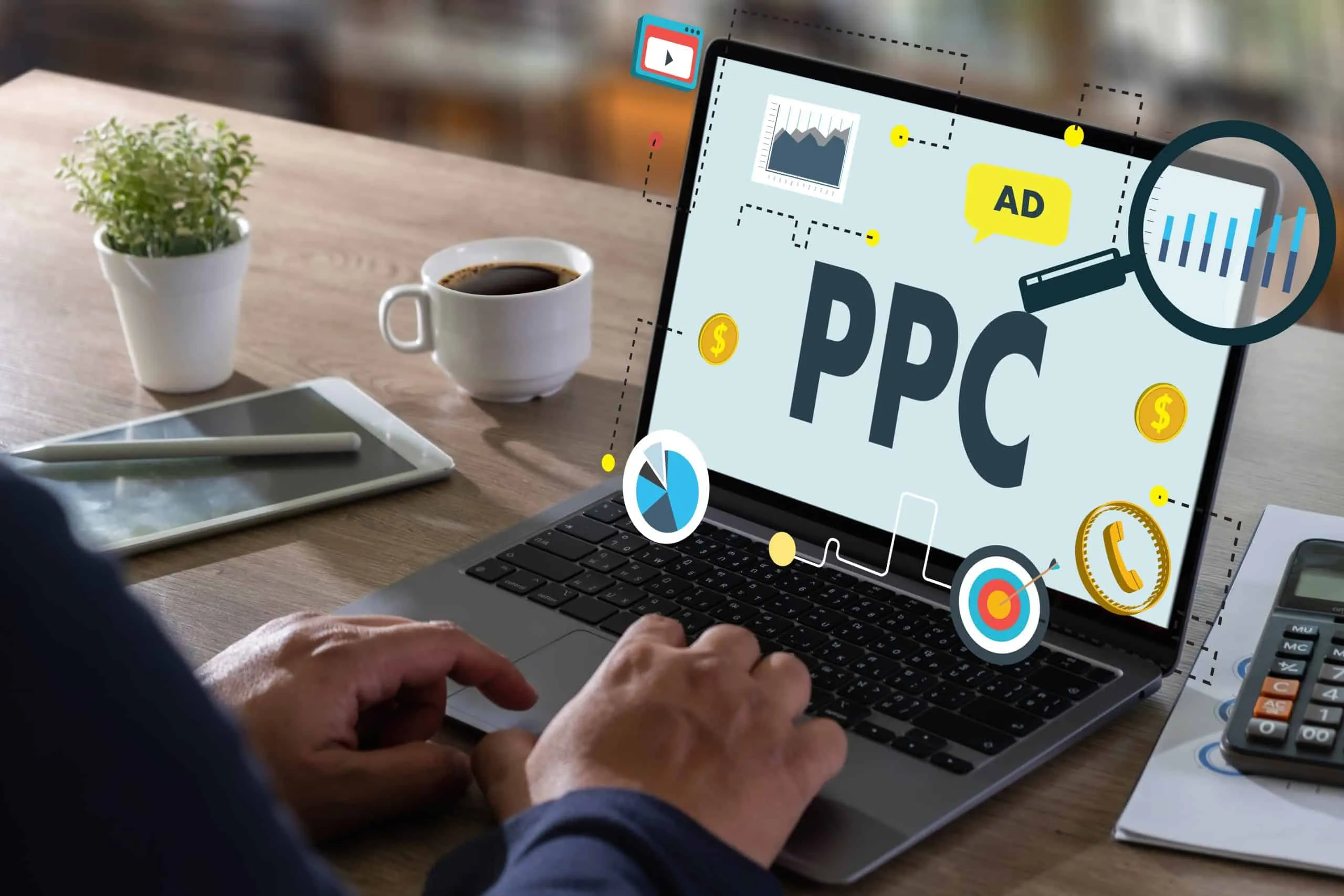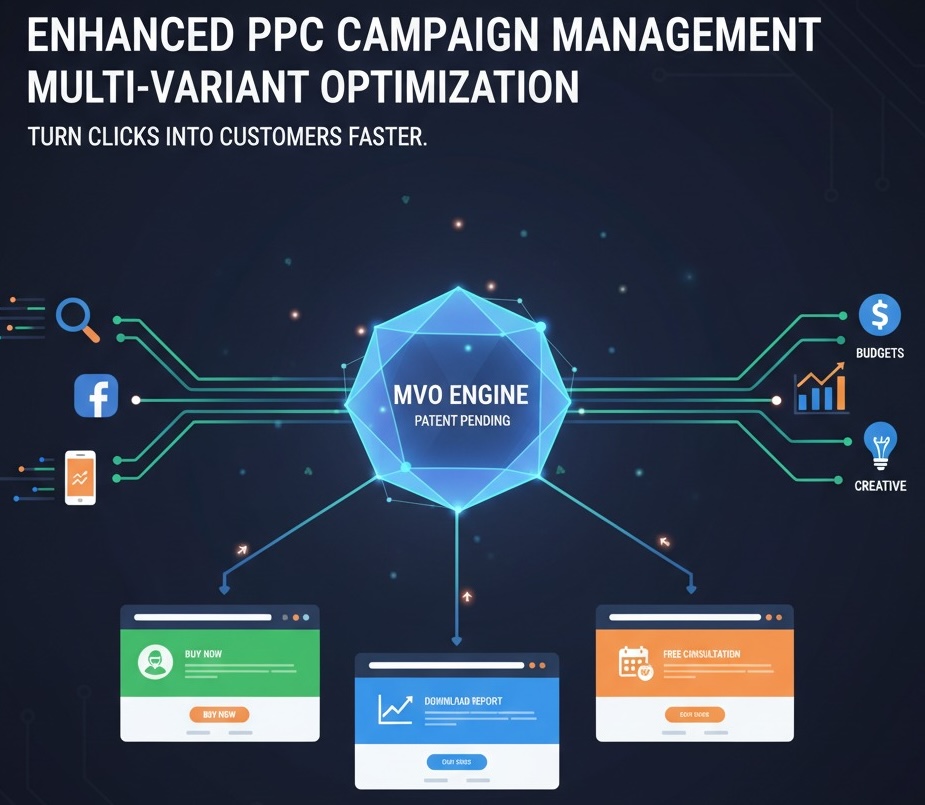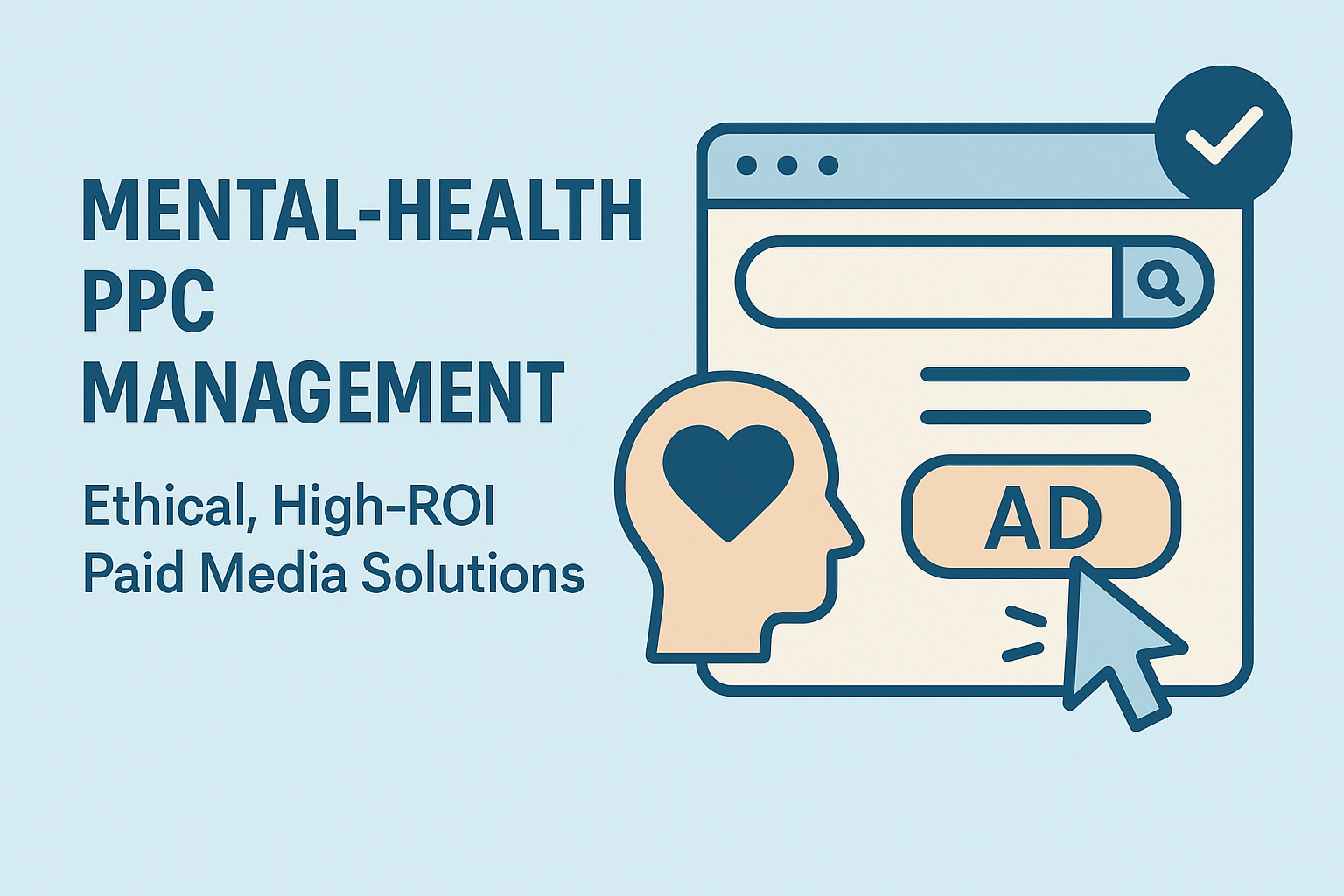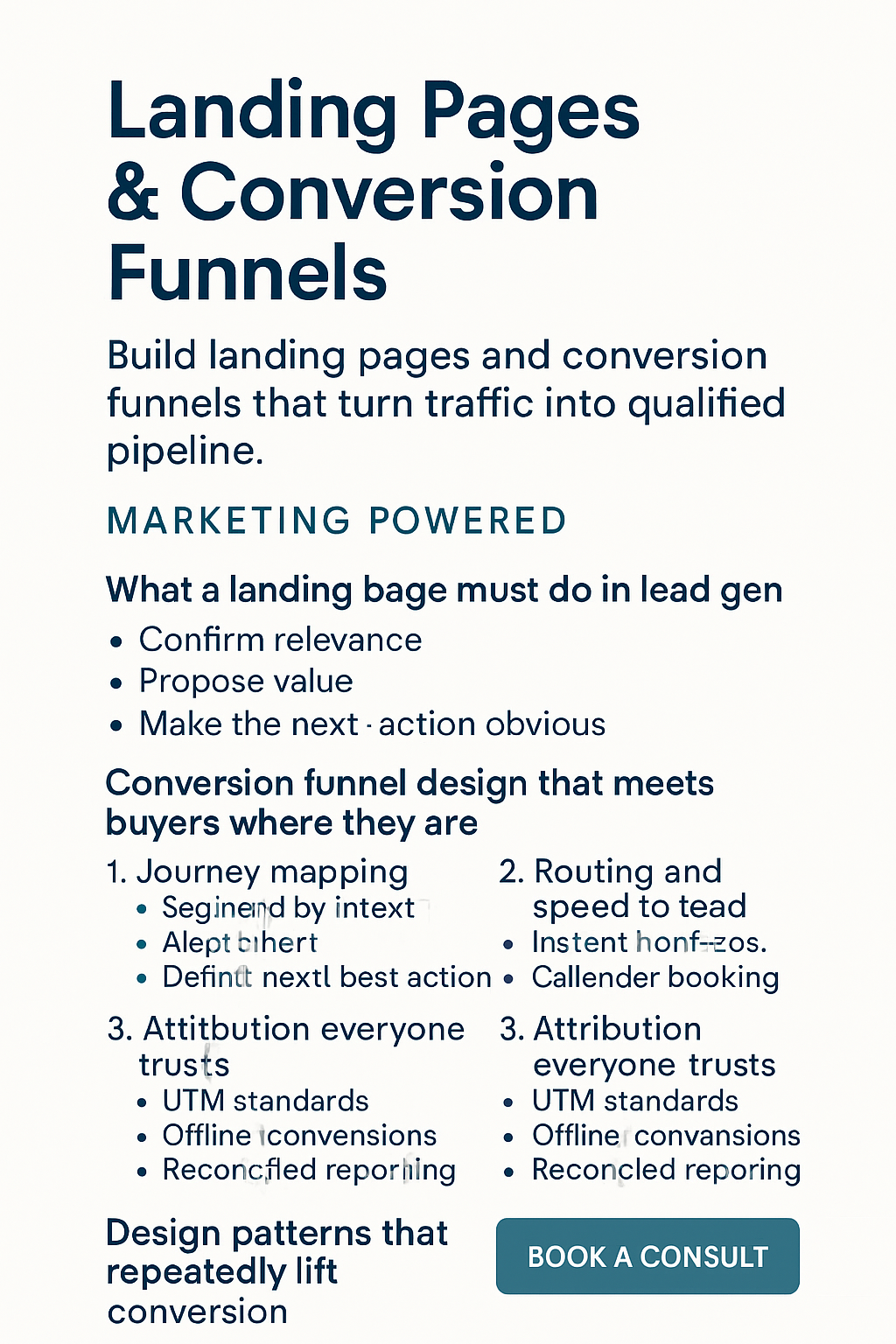Key Takeaways
- Conduct thorough keyword research and competitor analysis to identify high-potential targets
- Structure your campaign, ad groups, and ads optimally for relevance and quality score
- Craft compelling ad copies and optimize landing pages for conversions
- Set goals and track the right metrics to measure performance and ROI
- Continuously test and refine bids, ad creative, and targeting based on outcomes
- Leverage location data and scheduling to boost efficiency
- Use analytics to gain insights and make data-driven optimization decisions
- Automate processes and leverage new features to scale efforts
- Outsource to experienced agencies for strategic guidance and ongoing management
- Maintain campaigns through constant refinement and testing of new approaches
- Stay up-to-date on emerging trends to future-proof your campaigns
Defining PPC Campaign Management
PPC (pay-per-click) campaign management refers to the process of planning, executing, and optimizing paid search advertising PPC ads on platforms such as Google Ads and Bing Ads. It involves setting goals, tracking metrics, managing budgets and bids, as well as continuously testing and improving ad content and targeting.
The Importance and Role of PPC in Online Marketing
PPC advertising is one of the most effective online marketing channels for driving targeted traffic and leads. When managed properly, it allows businesses to show ads to potential customers at the exact moment they are searching for related products or services online through PPC ads on search engines like Google. Smart PPC campaign management is crucial for getting a good return on ad spend.
The Basics of PPC Campaign Management
Setting a Budget for your PPC Campaign
Defining an overall budget and daily/monthly spend limits is the first step. Consider factors like goals, competitor spending, product value and expected ROI when determining budgets.
Keyword Research for PPC
Thorough keyword research to identify relevant, high-volume target keywords is essential. Use tools to analyze search volumes, difficulty and competitiveness of keywords to build an optimal list for PPC campaign management.
Writing Effective Ad Copies
Craft compelling ad titles and descriptions that clearly communicate benefits to users and motivate clicks. Test different ad variations to determine highest performing copies.
Understanding the PPC Campaign Structure
Overview of Campaign Structure
Group keywords into relevant ad groups and organize these under broader campaigns based on factors like products, services or marketing goals.
Importance of Grouping Keywords
Proper keyword grouping helps serve the most relevant ads to searches and improves ad quality score and user experience.
Ad Groups Organizing Tips
Tips for effective ad group structuring include keeping variations of same keyword, limiting ad groups to max 5-10 closely related keywords and more.
Essential Strategies for Effective PPC Campaign Management
Optimizing Your Landing Page for PPC
Landing pages must be optimized to convert clicks into leads and sales. Set up goal-oriented pages with clear calls-to-action and compelling content.
Bid Management for PPC Campaigns
Use bid adjustments to optimize costs while maximizing ROI through testing and automation of bid strategies over time.
Geo-targeting and Ad Scheduling
Target ads to relevant locations or schedules to increase effectiveness. Pause low performing ads/placements regularly for optimization.
PPC Platform Selection
Overview of PPC Platforms
Google Ads and Bing Ads are major players. Others include Amazon Ads, YouTube ads etc. Features and strengths of each must be evaluated.
Google Ads: The Pros and Cons
Dominant player but higher costs. Pros include massive outreach, robust features and control. Cons are steep learning curve and costs.
Bing Ads: The Pros and Cons
Lower costs but smaller audience. Pros are simplified interface, lower budget requirements. Cons are limited features and smaller search traffic.
Performance Tracking and Reporting in PPC Campaign Management
Setting up Goals and Metrics
Set up customizable conversion goals like leads, signups, purchases. Track relevant metrics like impressions, clicks, CTR, CPC, position, cost etc.
Using Analytics for PPC Campaign Reports
Google Analytics and advertisers’ reports provide actionable insights. Track on-site behaviors and ROI through integrated analytics.
Common Mistakes in PPC Reporting
Avoid common pitfalls like inconsistent data sources, ignore negative keywords, unclear KPIs and attribution issues for accurate reporting.
Advanced PPC Campaign Management Techniques
Customizing Ads for Mobile Devices
Mobile-friendly ads and landing pages are critical as searches shift to mobile. Test dynamic skinning and responsive design.
Automating PPC Campaign Management
Leverage automation tools for bid and budget adjustments, ad scheduling, negative keyword management to save time and improve performance.
Leveraging PPC Remarketing
Remarketing improves ROI with targeted ads to site visitors. Add lead forms as re-engagement strategies.
The Role of PPC Management Agencies
Why Hire a PPC Management Agency?
Outsource complex optimizations, stay updated on latest strategies through dedicated PPC experts for better RoAS.
What to Expect from a PPC Agency
Full campaign management, dedicated account manager, strategic recommendations, monthly performance reports depending on chosen package.
Factors to Consider when Choosing a PPC Agency
Credentials, experience, agency service model, technology adoption, portfolio, reviews, communication style, pricing and more must be evaluated.
Conclusion: PPC Campaign Management Best Practices
Insights from Successful PPC Campaigns
Case studies of brands excelling at PPC highlight continuous testing, personalization as key success factors.
Updating and Maintaining Your PPC Campaign
Needs ongoing revisions, edits and controls to match changing market dynamics and new opportunities over time.
Future Trends in PPC Campaign Management
Topics like AI-driven optimizations, conversation marketing using chatbots, privacy updates will strongly impact best practices going forward.
Frequently Asked Questions
Q: How long does it take to see results from a PPC campaign?
A: You should begin seeing activity within the first few days as clicks come in. However, it can take 2-4 weeks to really optimize bids, ad copy and targeting. Most campaigns show good results within the first 2-3 months with ongoing optimization.
Q: Is it better to use broad or exact matching for keywords?
A: There is no definitive answer – it depends on your goals and budget. Broad matching casts a wider net but is less targeted. Exact matching is more precise but you may miss out on relevant searches. A/B test different match types to find the ideal balance.
Q: What is the typical cost-per-click (CPC)?
A: CPC can vary widely by keyword, industry and location. For informational keywords, average CPC is $1-2. For transactional keywords, expect $3-10 or more. Highly competitive keywords in big cities could be $50+. Monitor competitors for context.
Q: How often should I optimize my campaigns?
A: Most experts recommend checking campaigns daily and optimizing at minimum once per week. As campaigns mature, optimization can shift to every 2-4 weeks if performance remains steady. Continue A/B testing to find improved strategies.
Q: Should I use broad, phrase or exact match for my keywords?
A: There’s no universal answer – test different match types to see which performs best for your business goals. Broad usually has higher volume but less relevancy, while exact is more targeted but you may miss out on related searches. Finding the right balance requires testing.
Q: Do I need a website to run PPC campaigns?
A: No, you don’t need a website – you can directly send traffic from PPC to your application, catalog, store, etc. However, having a strong, goal-oriented website that converts clicks to leads/sales will help maximize your PPC ROI.
Q: How much should I spend on my first PPC campaign?
A: Budgets depend on your goals, but most experts recommend $300-500/month minimum for meaningful PPC testing. Be prepared to adjust spend up or down based on results after 2-4 weeks of collection performance data.




